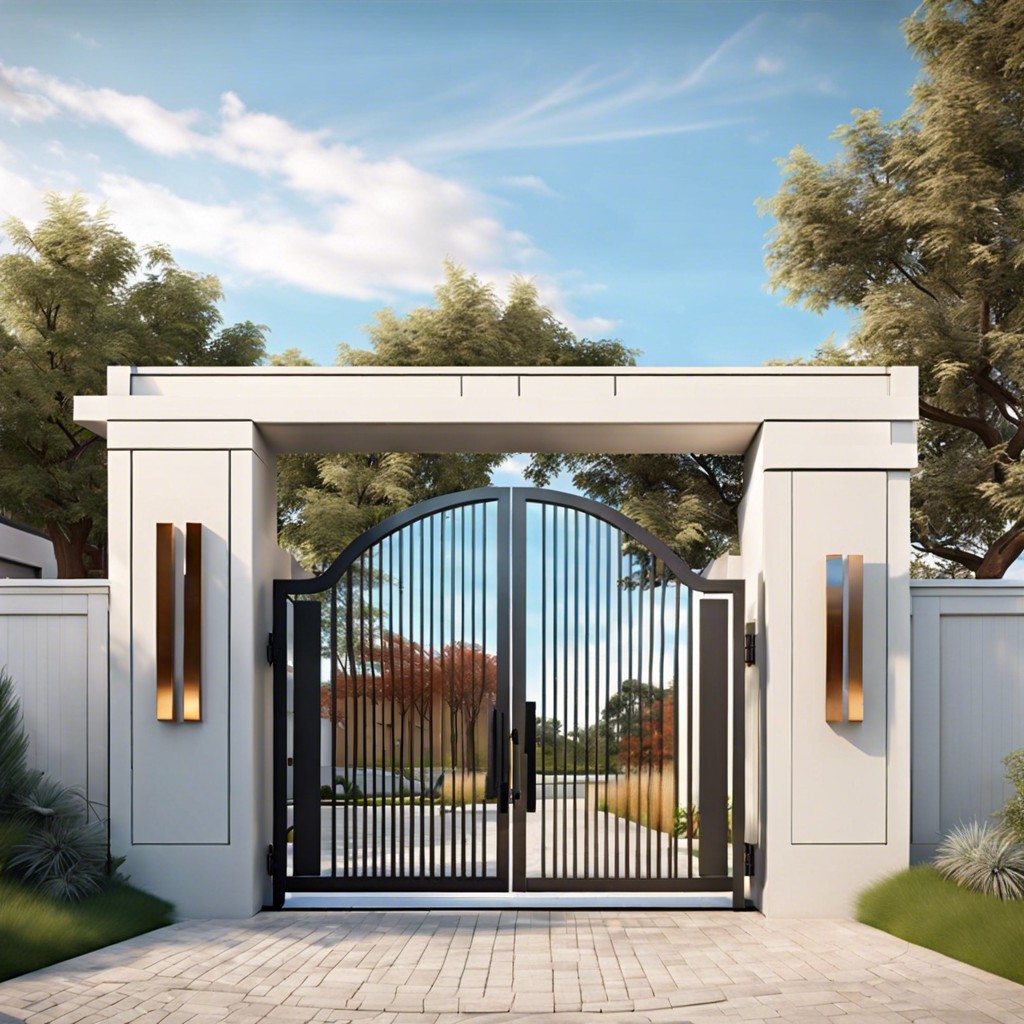Last updated on
Yes, flipping a mobile home can be worth it as it may offer a substantial return on investment if it’s bought low, renovated wisely, and sold in a market with robust demand.
Flipping a mobile home can indeed be a profitable venture, especially when implemented with ambitious, yet realistic, sustainable practices.
The relatively low initial investment, booming market demand for affordable housing, and the potential for high return on investment, all signal good prospects for this endeavor.
However, success is not guaranteed and it necessitates critical decision making, targeted efforts, keen detailing, and an emphasis on incorporating eco-efficient modifications.
So, surely consider home flipping, but ensure you’re equipped with the necessary skills, market knowledge and sustainable approach to navigate this terrain.
Continue reading to explore the step-by-step process, cost breakdown, maximizing the sustainability aspect, potential challenges, and real-life examples of successful mobile home flipping ventures.
Key takeaways:
- Flipping a mobile home can offer substantial ROI.
- Low initial investment and high demand for affordable housing.
- Critical decision making and sustainable renovations are crucial.
- Challenges include financing, depreciation, and zoning restrictions.
- Consider location, negotiation, and marketing strategies for success.
What Is a Mobile Home?

A mobile home refers to a prefabricated structure, built in a factory on a permanently attached chassis before being transported to the site. These homes are usually placed in one location and often situated in mobile home parks.
Here are some key points to understand about these structures:
- Construction and Design: They are designed for easy mobility, but this doesn’t limit their size or quality. Modern versions can rival traditional homes in sophistication.
- Legal Classification: Although mobile, they are categorized as personal property, unless the owner also owns the land it occupies.
- Customization: Owners can choose from various floor plans and amenities, allowing for personalization.
- Utility Connections: They are set up for utilities much like any housing structure, with water, electricity, and sewer services.
- Affordability: Generally more affordable than site-built homes, they offer a lower barrier to entry into homeownership.
- Depreciation: Unlike traditional homes, these structures typically depreciate over time, much like vehicles, which impacts their long-term investment value.
Difference Between Mobile Homes and Manufactured Homes

Understanding the distinction between mobile homes and manufactured homes is crucial before diving into the flipping realm. Here are key differences:
- Date of Manufacture: Mobile homes were built before June 15, 1976. After this date, stricter HUD standards came into play, and homes built post-this period are termed manufactured homes.
- Building Standards: Manufactured homes must adhere to federal HUD code, which governs construction, strength, durability, and safety, while mobile homes often pre-date these requirements.
- Foundation: Manufactured homes are typically placed on permanent foundations, whereas mobile homes might not be, affecting stability and potentially value.
- Design and Size: Modern manufactured homes offer more design variety and can mimic traditional stick-built homes, with options ranging from single to multi-section units.
- Appreciation: Manufactured homes have a better chance at appreciation due to stricter building codes and higher quality, compared to older mobile homes.
Recognizing these differences assists in assessing the potential investment and determining the appropriate strategy for flipping.
Advantages of Flipping Mobile Homes

Lower Initial Investments: With prices generally less than traditional houses, you can enter the flipping market without a hefty financial commitment.
Quick Renovation Turnaround: Smaller spaces mean renovations can be completed faster, allowing for a more rapid return on investment.
High Demand for Affordable Housing: As housing costs rise, the demand for affordable alternatives like mobile homes grows, potentially leading to quick sales when priced right.
Flexibility in Location: Many mobile homes are part of communities with infrastructure and amenities, which can be a selling point for buyers interested in a particular lifestyle.
Reduced Competition: Fewer investors focus on mobile homes compared to traditional properties, providing a niche with ample opportunity for those willing to explore it.
Potential for Creativity: Revamping a mobile home offers a chance to get creative with modern, space-saving designs appealing to the minimalist and eco-conscious buyer.
Opportunity for Seller Financing: In some cases, you can offer seller financing to attract buyers who might not qualify for traditional loans, creating a win-win situation by ensuring a sale while providing a service.
Challenges Related to Flipping Mobile Homes

While flipping mobile homes can be profitable, it also comes with its unique set of obstacles. First, financing can be trickier to secure, as many lenders are reluctant to offer loans for older mobile homes or those not anchored on a permanent foundation. This may require finding specialized financing options or paying cash.
Second, depreciation is a significant factor. Unlike traditional homes, mobile homes typically depreciate over time, which can affect your resale value and potential profit margins. It’s essential to accurately assess the mobile home’s condition and account for this depreciation when planning your flip.
Additionally, there are zoning restrictions and mobile home park rules to consider. Mobile homes placed within parks may have regulations that limit modifications or dictate aesthetics. Confirming with park management can prevent potential costly missteps.
It’s also vital to understand the differences in construction. Mobile homes are built differently than site-built houses, and renovating them requires specialized knowledge of their construction, such as understanding how to handle the lack of traditional foundation or manage weight distribution on the chassis.
Lastly, the market for mobile homes can be less liquid than for traditional homes. This means you may need to plan for a potentially longer sales period, which can tie up resources and potentially impact cash flow.
Ways To Obtain Mobile Home Financing
Securing funding for a mobile home can be distinct from other real estate investments due to the unique nature of these properties. Here are practical financing options to consider:
- Chattel Loans: These are personal property loans commonly used for mobile homes not permanently attached to land. They tend to have higher interest rates and shorter terms than traditional mortgages.
- Personal Property Loans: If you’re purchasing a mobile home without land, this type of loan might be suitable. It’s similar to a chattel loan and is based on the creditworthiness of the borrower.
- Conventional Mortgages: For mobile homes that are affixed to a permanent foundation and classified as real property, conventional mortgage lenders may finance the purchase.
- FHA Loans: The Federal Housing Administration offers loans for mobile homes and lots, requiring lower down payments and catering to those with less-than-perfect credit scores. Specifically, the Title I program is designed for home-only loans.
- VA Loans: Veterans may qualify for a VA loan with favorable terms for a mobile home and lot purchase, assuming they meet the service requirements and the home meets specific VA standards.
- Seller Financing: Sometimes, the current owner might be willing to act as the lender, which can simplify the process and potentially offer more flexible terms.
- Home Equity Loans: If you own a home with significant equity, you could tap into it to finance the mobile home purchase. This option involves risk since you’re securing the loan with your primary residence.
It’s important to evaluate these options against your investment strategy, timeframe, and financial situation to ensure the path you choose aligns with your flipping goals.
10 Steps for Successfully Flipping Mobile Homes
Embarking on a flip starts with setting a realistic and firm budget. Know the most you can spend on purchase, renovation, and carrying costs without cutting into profits. Next, look for mobile homes in areas with high demand to boost the chance of a quick and profitable sale. Don’t flip blindly – analyze each potential property for underlying issues that could turn your flip into a flop.
Selecting the right mobile home is crucial; pinpoint one that is structurally sound but cosmetically dated – these are perfect candidates for a value-adding makeover. Hone your negotiation skills to secure the best purchase price, keeping in mind the post-renovation value.
Renovations need to be budget-friendly yet impactful. Always secure the necessary permits to avoid legal snags. Once the home is looking its best, determine a competitive selling price that reflects the improvements and the current market.
Marketing your flip effectively is key. Use high-quality photos and craft compelling listings to draw in potential buyers. Be prepared to show the home and highlight its best features. And remember, patience and flexibility can help seal the deal and finalize your successful flip.
Step 1: Establish Your Budget
Creating a financial plan is crucial before diving into any renovation project. Start by calculating the maximum investment you’re willing to make, keeping in mind the costs associated with purchasing the property. Factor in the expenses for repairs, upgrades, and any unforeseen challenges that could inflate your budget. Ensure you include transaction fees, such as taxes and title transfers, into your overall calculation.
Moreover, it’s wise to set aside a contingency fund, typically 10-20% of your total budget, to cover unexpected costs during the flip. By preparing for these variables, you can avoid overspending and protect your profit margin when it’s time to sell.
Remember, conservatively estimating your renovation costs and final sale price will provide a more realistic view of the potential financial outcome. This step lays down a solid foundation for a successful mobile home flip and keeps your finances in check throughout the project.
Step 2: Find a Promising Location
Identifying the right location is pivotal for the success of any real estate investment, including mobile home flipping. A desirable area can enhance the value of the home and increase its marketability. Here’s what to focus on when scouting for the perfect spot:
- Understand the Market: Research local housing market trends, including supply and demand dynamics for mobile homes.
- Evaluate Amenities: Proximity to key amenities like shopping centers, schools, and healthcare facilities can boost appeal.
- Community Rules and Regulations: If you’re considering a mobile home in a park, review the community’s rules and fees as they can impact profitability.
- Accessibility: Easy access to transportation and major roadways is a plus.
- Safety and Appeal: Look for neighborhoods with low crime rates and appealing surroundings, which can translate into higher resale value.
- Lot Rent Considerations: In parks, the lot rent can affect your bottom line—opt for locations with stable, reasonable fees.
Assessing these elements can help ensure that the homes you flip have the potential for a quick sale at a profitable price point.
Step 3: Conduct Thorough Analysis
When you delve into the data, pay close attention to market trends and the demand for mobile homes in your chosen area. Investigate the average time mobile homes stay on the market before selling, and note the selling prices of comparable units. Assess the community or park where the mobile home is located; consider the lot rent, amenities, management, and overall appeal to potential buyers.
Don’t overlook the importance of a detailed inspection to uncover any hidden issues that could affect your budget or timeline. Additionally, factor in the age and make of the mobile home, as older models might be more challenging to finance for future buyers, possibly limiting your market.
Understanding the local rules regarding mobile home renovations is crucial; some areas may have restrictions that could impact your plans. Ensure that you also look into the title status of the mobile home to avoid any legal entanglements that could disrupt the sale. By meticulously analyzing these aspects, you position yourself to make an informed investment decision.
Step 4: Identify a Mobile Home With Resale Potential
Identifying a mobile home with strong resale potential is critical to the success of your flipping venture. To ensure you make a smart investment:
- Assess the age and condition: Seek out homes that require minimal to moderate refurbishments, as this will keep renovation costs down and improve the profit margin.
- Look for a desirable layout: Homes with open floor plans, multiple bathrooms, and spacious kitchens tend to attract more buyers and sell more quickly.
- Evaluate the location: Proximity to amenities, good schools, and public transportation can significantly boost a home’s value. A desirable lot within a well-maintained mobile home community is often a strong selling point.
- Check for clear titles: Ensure there are no liens or ownership disputes that could complicate the sale or increase costs.
- Understand the market demand: Research recent sales in the area to gauge the types of mobile homes that sell best. This helps in targeting renovations to match buyer expectations.
Focusing on these points gives you a clearer roadmap for selecting a mobile home that’s more likely to yield a profitable flip.
Step 5: Negotiate the Purchase Price
When negotiating the purchase price of a mobile home, it’s essential to use your due diligence as leverage. Start by evaluating the home’s current condition and considering the costs of necessary repairs or upgrades. Doing so enables you to provide evidence-based reasoning for your offer price.
Keep in mind that sellers are often open to negotiation, especially if the mobile home has been on the market for some time. Approach the negotiation with the following points in mind:
- Use comparable mobile home sales data to justify your offer. Provide examples of similar homes in the area that have sold for comparable prices.
- Be prepared to walk away if the price doesn’t align with your budget. It shows you’re not desperate and may lead the seller to reconsider your offer.
- Cultivate rapport with the seller to build trust and facilitate a more favorable negotiation environment.
- Consider the seller’s circumstances. If they’re motivated by a quick sale, your position to negotiate a better price strengthens.
By undertaking these steps with a calm, professional demeanor, you strengthen your chance of securing the mobile home at a cost that aligns with your flipping budget.
Step 6: Obtain The Necessary Permits and Renovate
Before diving into renovations, secure all required permits from local authorities. This step is crucial to ensure your remodeling efforts are legally compliant and don’t face costly setbacks later on. Check with your city or county’s building department about specific codes and standards for mobile homes – these can differ from traditional homes.
When you’re clear to proceed, focus on upgrades that maximize value. Consider cost-effective changes with high impact, like fresh paint, new flooring, or updated fixtures. For larger improvements, prioritize the kitchen and bathrooms as these areas often offer the highest return on investment.
Remember to inspect the home’s structural integrity and systems. Address any issues with the foundation, roofing, plumbing, or electrical systems first. This proactive approach can prevent minor problems from escalating into expensive repairs and enhance the mobile home’s appeal to potential buyers.
Contractors experienced with mobile homes can be invaluable during this step. They understand the unique challenges and can offer solutions that combine efficiency with quality results. Always obtain multiple quotes and check references to ensure you’re entrusting your investment to reliable professionals.
Step 7: Determine the Selling Price
Arriving at the right selling price requires a balance between profit goals and market reality. Here’s how to set a competitive price for your flipped mobile home:
- Analyze Comparable Sales: Look at recent sales of similar mobile homes in the area to gauge the market value.
- Consider Renovation Costs: Factor in the expenses incurred during renovation to ensure your selling price covers these costs, while still offering potential buyers a fair deal.
- Factor in Market Conditions: Take into account whether it’s a buyer’s or seller’s market, as it can significantly affect how you price the home.
- Price for Quick Sale: If the goal is to sell quickly, consider pricing slightly below the market value to attract more buyers.
- Leave Room for Negotiation: Set a price that gives you leeway to negotiate with buyers without dipping below your acceptable profit margin.
- Avoid Emotional Pricing: Keep sentiment out of pricing decisions. Stay objective, basing the asking price on data rather than personal feelings or the amount of work put into the renovations.
Step 8: Market and Sell the Mobile Home
Effectively marketing your refurbished mobile home is crucial for attracting potential buyers and securing a sale. Utilize online real estate platforms and social media to showcase the renovated space, highlighting the improvements and features that add value to the property. High-quality photographs and virtual tours can entice viewers and increase interest.
Leverage your network by informing friends, family, and community members about the property. They can spread the word, expanding your reach. A well-placed “For Sale” sign on the mobile home itself can also capture the attention of passersby.
To facilitate the selling process, be prepared to host open houses, allowing interested parties to explore the mobile home’s amenities firsthand. During these showings, accentuate the benefits of mobile home living, such as affordability and flexibility.
Additionally, consider working with a real estate agent who specializes in mobile homes to tap into their expertise and clientele. They can guide you through pricing strategies, negotiation tactics, and closing procedures to enhance your chances of a successful and profitable transaction.
The Bottomline
Assessing the value proposition of flipping a mobile home involves looking beyond just the purchase price. Consider the cost of renovation, the market demand, and your ability to execute the flip efficiently.
Profit potential exists but requires diligent research, networking within the community for insights, and a clear-eyed understanding of the unique aspects of mobile home renovation, including material choices and adherence to relevant regulations.
Always conduct a thorough due diligence to weigh the return on investment against the time and resources you will commit. Your success hinges on informed decision-making and strategic execution.
FAQ
Do mobile homes have good resale value?
The resale value of mobile homes largely depends on factors like the current housing market, price and age of the home, inflation rate, and the level of maintenance and upkeep.
Are mobile homes ever a good investment?
In terms of investment value, mobile homes generally depreciate over time, unlike traditional homes or mobile homes placed on privately owned land, which typically appreciate.
How long does it take to flip a mobile home?
The process of flipping a mobile home typically takes within 12 months.
What are the potential costs associated with renovating a mobile home?
The potential costs associated with renovating a mobile home encompass materials, labor, permits, transporting costs if necessary, and incidental expenses related to contingencies or unexpected repairs.
Do flipping strategies differ between traditional homes and mobile homes?
Yes, flipping strategies significantly differ between traditional homes and mobile homes due to differences in property values, renovation costs, financing options, and market demand.
What are the specific legal considerations to consider when flipping a mobile home?
When flipping a mobile home, legal considerations include understanding local and regional zoning laws, obtaining proper permits for renovations, compliance with mobile/prefabricated home regulations and possible park rules, ensuring clear title before purchasing, and understanding sales tax obligations during resale.
Table of Contents




